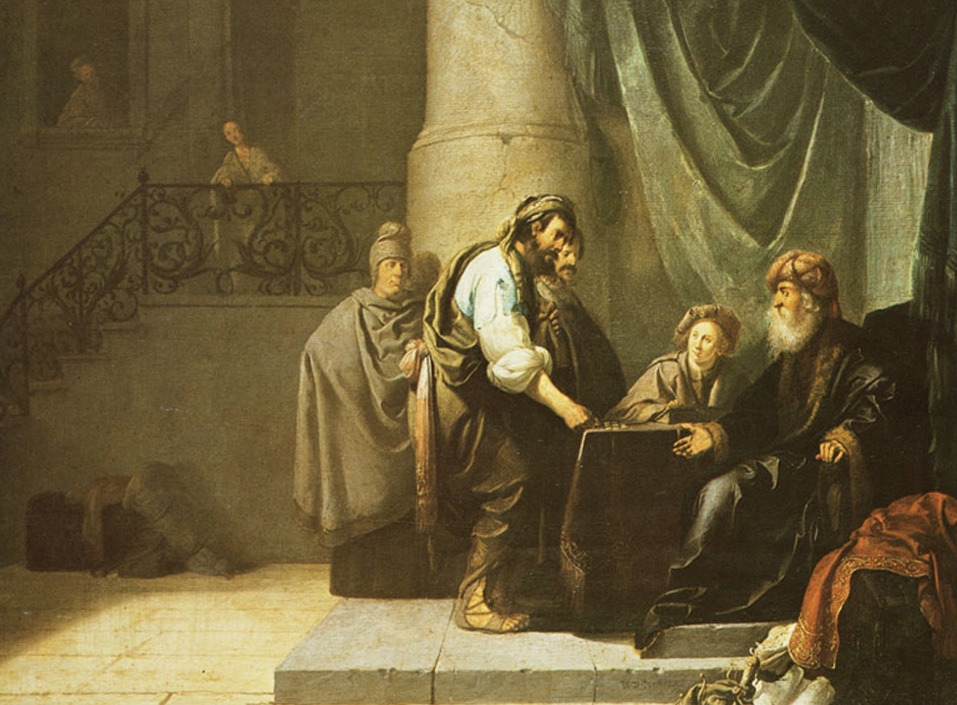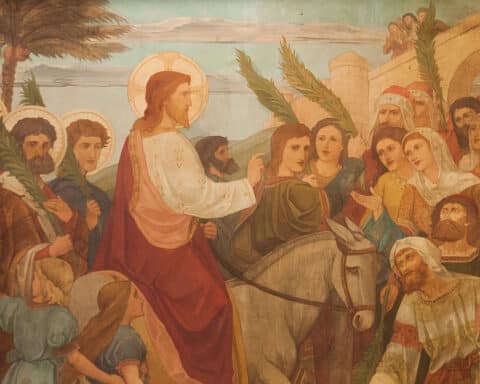
We know what the parable means, don’t we? God has given us talents, and we should use them for the stewardship of the Church.
And yet, our moralism tends to emphasize Christian life upon us. We are the primary actors, and God is a co-star in our project.
| November 15 – 33rd Sunday in Ordinary Time |
|---|
|
Prv 31:10-13, 19-20, 30-31
Ps 128:1-2, 3, 4-5
1 Thes 5:1-6
Mt 25:14-30
|
Let us remember that the parable of the talents follows an eschatological parable of the delayed bridegroom. The emphasis of the parable is upon God’s advent at the end of time. And the parable of talents is related to the final judgment of Our Lord.
For Jesus, a talent is not a marginal quantity of money. In fact, it is a weighty barrel full of cash. To even receive one talent for Jesus’ audience would be wealth beyond imagination.
The language of talent points to the unfathomable generosity of God. The servants are given talents not because they have earned them. The master bestows talents as pure gift.
And yet the servant given but one talent is incapable of recognizing this divine economy. He absurdly buries his barrel full of cash in what must have been a sizable hole. Worse, he accuses his master of being harsh, rather than generous.
The fault of the man possessing a single talent is the incapacity to recognize the generosity of God. What has been given to him in that talent is not for his own possession. God gives so that we might also give. Nothing is ours, all things come from God alone. And when we give out of what we have received, the divine investment doubles.
That is the proper attitude of the disciple awaiting the coming of Our Lord at the end of time. Yet the bridegroom has not left us bereft of gifts. We possess the gift of creation, the Scriptures, the sacraments, prayer and the works of mercy. God has given us wealth beyond wealth! What are we doing with it?
The conversion that Jesus is calling us toward is a return to a totalizing gratitude for the God who gives. We, too, must become those who give everything away, offering our whole selves back to God.
The Church evangelizes when she lives as one who has received everything from God, offering this divine gift to the world.
Our parishes require a renewal according to the generous economy of gift revealed by Jesus Christ. It is not enough to fulfill Sunday obligations, to give but a bit of cash away in the Sunday offering, to pray a little when we must, or to think about the hungry and thirsty on Mission Sunday.
This is not the attitude of one who has received the stunning gift of redemption, the impossibly powerful liberation from sin and death, and the surprising offer of sanctification in the death, resurrection and ascension of Jesus Christ.
The oil in our lamps is the gratitude we possess for the gift of the bridegroom to the Church, to the world, to me!
So we must prepare ourselves. Not with the quaint moralism of seven habits of highly effective people. No! Our preparation is a formation into a Eucharistic gratitude for the sacrificial love of the Word made flesh, more precious than silver or gold.
After all, that sacrifice of love unto the end is the talent of all talents that we have been given by the supremely prodigal God.
Timothy P. O’Malley, Ph.D., is the director of education at the McGrath Institute for Church Life at the University of Notre Dame.





